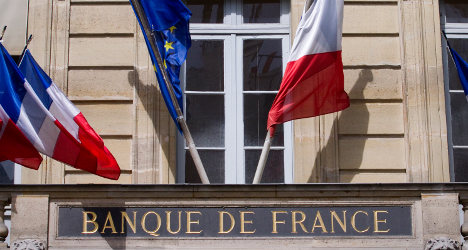France will stick to the country's EU-set budget deficit reduction target, the new finance minister insisted on Tuesday, dismissing earlier indications that Paris was angling for a delay.
"I have always said that I have not asked for a delay," Michel Sapin told AFP in a telephone interview, as the government spokesman said that deficit control was a condition for growth.
Sapin's remarks stand in contrast to signals from President Francois Hollande that Paris would seek leeway over a deadline for cutting its excessive public deficit as it seeks to bring pro-business reforms to boost growth.
The French daily Le Figaro reported on Tuesday that two of France's senior politicians, Philippe Leglise-Cost and Emmanuel Macron, received a frosty reception from their eurozone partners in Brussels last week during a trip to ask for more leeway.
Sapin told AFP that the pace of France's deficit reduction could be "slightly changed" by external influences, such as the impact of the strength of the euro, but that this did not jeopardise the government's overall commitment to its targets.
The European Union in June agreed to give France an extra two years, until 2015, to bring its deficit under the EU-agreed ceiling of 3.0 percent of economic output.
But strong doubts remain over whether the French government will be able to make good on its promise, as it struggles to balance its left-wing agenda and meet its commitments to the European Union.
Change of emphasis on deficit control
Official figures released last month put the budget overshoot at 4.3 percent of output last year — above the target of 4.1 percent.
The European Commission has repeatedly criticised France, with the eurozone's second-biggest economy, for its excessive deficit, warning that it risks destabilising the bloc's nascent recovery from the debt crisis.
French Prime Minister Manuel Valls, who was appointed this month after an election debacle for the ruling Socialist Party, vowed last week to slash public spending and drive ahead with structural reforms.
Addressing parliament in Paris for the first time, he pledged to keep pushing for the "recovery" of the country's public finances, confirming €50 billion ($69 billion) in budget cuts by 2017.
The 18 countries in the single currency are required to stick to strict debt and deficit ceilings and to submit draft budgets and data to the Commission, which polices the guidelines and can sanction any nation in breach of them.
Meanwhile the government's spokesman Stephane Le Foll, in a change of emphasis from Hollande's recent stress on going for growth, said on RTL radio that France could achieve the target for reducing the deficit to 3.0 percent of annual output.
But, the balance between cutting the deficits and achieving growth was "difficult".
Noting that France had managed to cut the deficit from 5.7 percent in 2011 to 4.3 percent, he said: "We cannot have growth tomorrow if we open the taps (for public spending)."



 Please whitelist us to continue reading.
Please whitelist us to continue reading.
Member comments